by Glenn | Mar 4, 2012 | MIA, Writing
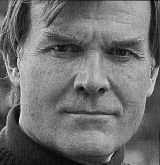
“MIA” Missing in Action: a casualty category assigned to the status of armed services personnel reported missing during active service, generally during combat environments.
Whenever asked what authors and books have made their greatest impression on me, I always answer: Nicholas Guild “The Assyrian,” Robert McCammon “The Wolf’s Hour,” Wilbur Smith “River God,” and David Morrell “First Blood.” Each is a highly acclaimed, award-winning, well-published author in his own right. Their combined books stacked one atop the other would be almost as tall as me. And no, I haven’t read every book they published, but have managed to read quite a few.
These are authors I respect for the depth of their research and unique qualities of writing. They have served as my mentors of the craft. Each year I pull out their books, reread them as if for the first time then reverently place them away until the next year. Finding some of these authors’ books in print today is almost impossible unless you wish to pay several hundred dollars (I searched the Internet for a copy of “The Assyrian” and it was selling for $360.) Fortunately, many of their books are returning to publication in eBook formats at lesser costs.
Wilbur Smith and David Morrell remain quite prominent in the public’s eyes today. They have websites and generously communicate with their readers, especially Mr. Morrell. Robert McCammon returned from a lengthy absence, is accessible to his fans, but more will be coming on this fine author in my next blog article, “Missing in Action, Part 2: Author Robert McCammon, “The Wolf’s Hour.” But what of Nicholas Guild?
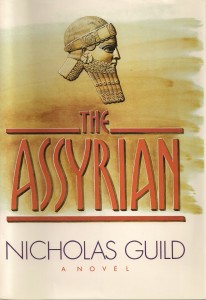
I recently completed a reading of “The Blood Star” (pub: 1989), the sequel to Guild’s “The Assyrian” (pub: 1987.) When you are wrapped within the intensity of a great author’s writings, you find yourself divided while reading their works. On one hand you anxiously devour each page, yet on the other, a sense of dread enters you because the last page is drawing near and the story will end. Nicholas Guild showed me how historical fiction should truly be written. For that I am eternally grateful.
From 1975 to 1995, Nicholas wrote 11 novels. His last work, “Angel,” supposedly contains a dedication to Susan Sheridan with a rather cryptic passage from Dante’s “Devine Comedy” that translated as best I can ascertain to, “…In the middle of the path in my life, I find myself in darkness…”
I found this odd, especially with it written on his last novel. Then my former police side kicked in with its questioning, investigative nature. So many years have passed without further word from Guild. I wondered where he was today. Why had he stopped writing? Why had he seemingly fallen off the ends of the earth? No man so prominent within a professional community as he was, vanishes without reason.
What began as a simple exercise to satisfy my curiosity quickly became an intriguing puzzle and analysis of a man’s mental state. With all of its pros and cons, the Internet is an amazing tool. I found his basic bio and assorted reviews of his novels. Guild obtained his PhD at the University of California at Berkeley in 1972 and as other authors have, moved on to become a professor of English Literature at a university. Connecticut was given as his last known residence where he was enjoying life with his family. Eleven novels, his writer celebrity growing, and all came to a screeching halt in 1995 after the release of “Angel”—then he vanished like a magician upon a stage who swirls a black cloak around himself and disappears before your eyes in a cloud of smoke.
I read articles and reviews about him until my head throbbed. I realized before me was the answer as to why he had stopped writing, only the water was too muddy for me to see through. Taking a walk to think, I recalled experiences with my agent and editors of publishing houses during the same period (80’s into the 90’s) that Guild was rising in public popularity. I remembered conversations with well-published friends and the industry stories they whispered as if spies were about us.
The publishing world may appear massive and magical from an everyday reader’s perspective but in actuality, it’s a small world where few secrets exist. Editors changed employment at the big houses so swiftly then that it became the norm. Most editors were quite young during that time, not long out of college, and believed they knew what the public truly wanted and how they thought. The big houses often played favorites with their authors which created dissension over matters such as advertising and printing runs. New book ideas were often killed by editors, and authors wanting to write in different genres were frowned upon, balked at, and argued against with fervor. There was often tight-fisted reign upon authors in terms of story revisions and the next book to be written. While some of these actions proved beneficial for the industry, others became detrimental. Such was the publishing world’s environment during those years. I hope it is different now.
But the muddy water began to sufficiently clear, allowing me to see possible reasons why such a gifted writer as Nicholas Guild had turned away from his talents and became missing in action. I jotted notes upon paper and began to study each:
- Had the depth of his research, thought, action, dialogue, and characters become so demanding that by the end of the book he was mentally drained? Once you read “The Assyrian” you will fully understand the intensity I speak of here.
- Did he want to break away from his original genre path but found confrontation with his publishers?
- Did it reach a point whereby editors were attempting to overly control his writings?
- Although his writings were well acclaimed, did he discover he was not equally favored by his publisher as they had provided for with other in-house authors?
- Were there physical illnesses, some medical issue such as cancer or Alzheimer’s Disease involved which forced him to abruptly stop writing?
- Or did he simply ‘burn out’ from the constant combat in mini-battles with publishers and chose to retreat into an educational world of literature where there appeared to be fresh air for the long term?
These are all assumptions on my part. There is nothing concrete to base an answer on. But my gut feeling tells me he willingly chose the fresh air at the cost of being declared missing in action.
Wherever you are, Mr. Guild, I wish you the best in all of your endeavors. If by some miracle you should ever read this, I respectfully say, “Thank you for being one of my mentors.”
Sincerely,
Glenn
by Glenn | Feb 18, 2012 | Writing
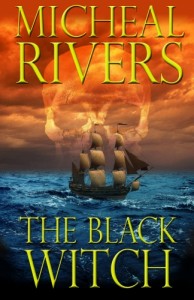
- “A gripping tale of a ship of doom….”
“The Black Witch” by Author Micheal Rivers
The gripping tale of a ship of doom…
First, understand I am not one who enjoys being at sea aboard a vessel of any size. I like the ocean and best appreciate it when viewed from shore. But I do enjoy a good nautical tale, especially one with a paranormal theme, and respect the addiction and love many hold for sailing the seas.
The descriptive depiction of the ship drew me into this story then the lure of the sea as felt by its seafaring crews came next. I was drawn into the seemingly hypnotic grip which the Black Witch laid upon all that neared her. Unique in build, a magnificent vessel with a truly mysterious background of fatal voyages, I soon discovered I wanted to learn more about the coming journey of the doomed, assorted passengers. With a ghostly foundation being well set by the author, I wondered how each would fare, curious what trials were to be set upon them.
The spectrum of characters is well balanced. Their diversity at first leaves you interested in how they will interface, yet by the novel’s end each retained an appropriate part in what became horrific experiences. Whether you believe in the devil or not, the demon that walks the ship plays havoc with your thoughts, leaving you disturbed at how he plies upon the weaknesses of mankind, taking pleasures as he desires against anyone’s will.
In truth, I became so absorbed in my reading at one point that I startled when my dog stood and nosed me for attention. I found myself wanting to know what lay next for the passengers and how much worse their plight could be—and when I believed I knew what might come, something different occurred to my surprise.
So for those readers who love an adventurous seafaring tale with a depth of paranormal blended tightly within, The Black Witch is worth the read. And if I were to ever buy a boat, which I doubt, it surely will not have the name “The Black Witch” painted along its sides.
Glenn Starkey
by Glenn | Feb 15, 2012 | interview, Writing
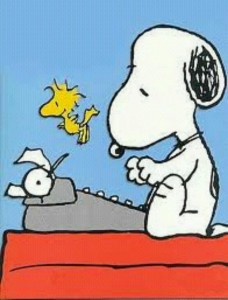
The Creative Mind
http://bookmarketingbuzzblog.blogspot.com/2012/02/interviews-with-publisher-literary.html
Interview With Novelist Glenn Starkey
What are the challenges of being a novelist today?
The greatest challenge is writing a novel worth reading. Accomplish this and the rest is procedural in terms of marketing your book. You can obtain help from mentors, friends and even hire people to promote your project, but if you do not have a book worth reading, you have no foundation to build upon.
What is your newest book? Why did you write it?
I am presently completing my first “sci-fi” based book “Amazon Moon.” As an action-adventure and historical fiction novelist, I wanted to challenge myself with a new creative path of writing — a hard hitting action-adventure that ends with a science-fiction twist. While some authors choose to remain within a single genre, I want to be known as an author that can cover a spectrum of writings and always turn out a quality story regardless of the genre.
What do you love most about being a published author?
I love writing a novel and receiving comments from men and women readers around the world telling me how much they enjoyed the story. When they begin telling me how much they loved the characters, the action, the storyline, and so forth, it truly makes my day! I then realize how I achieved my goals of being an author, capturing a reader’s soul, and making them want to read “one more page” before stopping for the day. I had one reader state, “I hate you!” Just that alone stunned me then I smiled as I read, “…you made me miss so much sleep because I loved your book and couldn’t stop until the end.”
Any advice for a struggling writer?
Honesty with yourself about your writing skills and perseverance in your efforts is important. First, study the craft by reading a wide variety of books in different genres. Second, write and complete your book before worrying about advertising, marketing, book sales and promotions. Third, get your book read by at least ten non-related people so you have a feel for your writing ability—and don’t argue with their review of your work. Analyze their comments and find the norm of problems they presented to you…then fix the problems whether it is your poor writing skills or a weak storyline. Fourth, be prepared for a bad review down the road. It doesn’t mean you are a bad writer. Remember, not everyone likes the same things in life.
Where do you see the book industry heading?
The first computers filled a room with their monstrous sizes and used IBM punch cards and reels of magnetic tape for their data. Fast-forward from that point and today your cellphone is a mini-computer with far more abilities. Your cellphone is a mini-computer. You can read a book or write one using your cellphone if you wish. Now look at the book industry. It has moved from ancient printing presses with all their labors to electronic distribution of books via “eBooks.” The evolutionary society we live in, courtesy of technological advancements, combined computers and the publishing industry so tightly that it leaves future developments a wide open race. We have become a demanding society which expects technology to continually change—and do so swiftly. There should always be readers and a demand for well written books, but the medium we will be using is anyone’s guess. I am of the generation that still loves to “hold” a book in hand, but my grandson will be of the generation that relates more to an eBook than a hard or soft cover novel. Neither is best or wrong; it is simply how we have evolved and what we have learned during growth.
For anyone in search of a definitive answer about the future of the industry, they will be disappointed to learn there is no set answer. There will be more of a lean toward electronics such as eBooks, but the love of physically holding a book will remain for several more generations. I do firmly believe though that “big house” publishers will gradually lose their domination over the publishing industry. I believe “indie-authors” and “indie-publishing” are forces to be reckoned with.
For more information about Glenn Starkey and Solomon’s Men, Year of the Ram, and The Cobra and Scarab: A Novel of Ancient Egypt, please consult: https://glennstarkey.net
by Glenn | Jan 31, 2012 | General

The people in our novels die a variety of ways. From vampire attacks to blazing gun battles we as authors play GOD by creating fictional worlds and deciding when and how our characters will meet their demise. In the real world though, we have no control, much less any idea as to how our own lives will end. Silently though, we hope it will be swift and painless.
From youth you may remember the child’s bedtime prayer or you may have even said it with your own children and grandchildren: “Now I lay me down to sleep, I pray the Lord my soul to keep…” It’s one of those many things you carry through life as a gentle memory.
I thought of it recently while standing at the nursing home bedside of my mother-in-law. At eighty-seven years of age she had suffered with Alzheimer’s disease the last three years and the disease, now in its final stage, kept her bed-ridden and asleep. Conversation of any sort had stopped months ago. Her eyes rarely opened and when they did, only a distant stare came. Each day she weighed less than before, gradually becoming a mere wisp of the once vibrant woman I had known for thirty-six years. To watch her deteriorate to this physical state, merely breathing, not truly living, was torturous on the family. The next day she passed away. I viewed it as a blessing because her suffering had at last drawn to an end.
In those following days we received volumes of condolences from friends and family. As I read the letters and notes, I was struck hard by the realization almost everyone mentioned a friend or loved one that had suffered with the disease before dying or was presently suffering from it. The disease may physically affect one person, but the outreach of its talons leaves a cruel mark on many.
People die from other debilitating diseases as well. Alzheimer’s is not alone in that respect. What disturbs me is the physical and mental degradation you undergo from these maladies before the end arrives. A once physically active person becomes a prisoner to a bed, no longer able to feed or bathe themselves. A wonderful writer can no longer recall his name much less compose a simple child’s story. A superb speaker grows mute, no longer able to form a coherent sentence. Each of us has witnessed these at some point in our lives, yet we do not want to consider how our own end will be. It doesn’t matter though. We will have little or no control when the time arrives.
Walk through a nursing home, listen to the residents’ moans and let the smells scorch your mind. You will not leave with the same state of mind you carried upon arrival. You will have a sense of guilt about you because the residents must remain while you may leave. But I realized there is more to it. You feel a sense of guilt because you may maintain a degree of dignity about yourself while your loved ones have lost theirs and lay helpless. I was struck by this thought when one of the last things my mother-in-law softly said was “Help me. I want my dignity.”
If I contract a disease and become confined to bed, before I move into a constant state of sleep, I hope someone will recite the bedtime prayer over me. And when the last grain of sand falls in my hourglass of life, all I too will want is to be able to die with dignity.
Glenn
by Glenn | Jan 18, 2012 | General
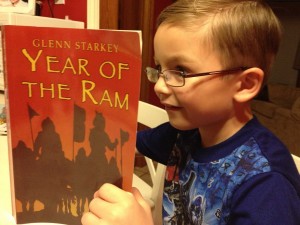 By the time I was eight years old I had hunted bear with bow and arrow, ridden across the open plains upon magnificent horses, and hacked my way through lion infested jungles. By the time I was ten years old, distant lands were no longer foreign and the world had become my playground. All this and more I accomplished solely through reading without ever leaving my home. As a kid, books were my escape from a quarreling family and chaotic life. It wasn’t until later that I realized how my early love of reading had paved the way for my achievements in adulthood.
By the time I was eight years old I had hunted bear with bow and arrow, ridden across the open plains upon magnificent horses, and hacked my way through lion infested jungles. By the time I was ten years old, distant lands were no longer foreign and the world had become my playground. All this and more I accomplished solely through reading without ever leaving my home. As a kid, books were my escape from a quarreling family and chaotic life. It wasn’t until later that I realized how my early love of reading had paved the way for my achievements in adulthood.
Reading is vitally important. Our lives revolve around its daily usage. Pause for a moment and think about the people you know, their stations in life, as well as their levels of literacy. Generally you will find people with high degrees of competency were or are avid readers.
My son was always encouraged to read, and that same encouragement is being passed on to my grandson. Through my son’s thirst for knowledge and my daughter-in-law being an elementary school teacher, my grandson’s reading level will be quite good — but not all children are fortunate enough to receive encouragement or have a father and mother present in their lives for whatever reasons.
I’m a “Reading Buddy.” It’s an odd title, but one I wear proudly. Two days each week I volunteer to go to my grandson’s elementary school, sign in, and go to a teacher’s classroom. The teacher selects two or three students to go with me to the cafeteria where we will sit, read and discuss books the teacher has chosen for them that day. I read to them or they read to me. I ask them about the books and they give me all sorts of answers, some even related to the books. Those little elementary school cafeteria chairs are not the most comfortable in the world, and the pay for being a “Reading Buddy” is zero – but the personal reward I receive is far greater than a treasure chest of gold. Their smiles are my paycheck. And if lucky, I might do something for one of those kids that make a difference in their lives.
There are a dozen reasons why some children may not receive encouragement at home and this writing is certainly is not intended to be a soap box to preach from. Yes, some of the reasons disturb me, especially when it involves parents being more concerned with their own lives than that of their child’s. But there are single parent homes where the parent is often gone, working two jobs to support the family or the parent’s own literacy level may not be adequate to help their child learn to read. And worse, as I experienced today, a child may have recently lost a parent and feels lost in life with little reason to want to read.
Give back to your community. Invest in the future by investing your time with a child. Volunteer to do something with the talents you have. Teachers are overworked and underpaid. They appreciate every bit of help they receive. After all, they are establishing the educational foundation of the children that are tomorrow’s leaders.
A flower needs water and sunshine in order to grow. A child needs love and encouragement to flourish.
Glenn
Note: In our school district volunteers must complete a form and undergo a background check before being allowed to work in any of the schools. It’s another good process to insure the safety of our children.







